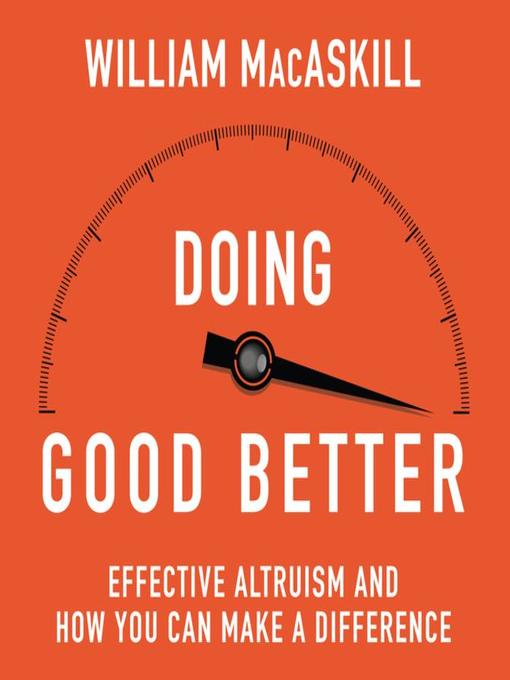-
Description
-
Creators
-
Details

- William MacAskill - Author
- Sean Pratt - Narrator
OverDrive Listen audiobook
- ISBN: 9781469062570
- File size: 202738 KB
- Release date: September 1, 2015
- Duration: 07:02:22
MP3 audiobook
- ISBN: 9781469062570
- File size: 203015 KB
- Release date: September 1, 2015
- Duration: 06:53:18
- Number of parts: 8
Formats
OverDrive Listen audiobook
MP3 audiobook
subjects
Languages
English
